Bust a CAPA

Colter pulled a hamstring during this press conference
If you hadn’t heard, Northwestern’s football players won a court thingy yesterday. NLRB Regional Director Peter Sung Ohr ruled that Northwestern’s players meet the definition of employees, and can therefore form a union if they wish. You can read the ruling here, but why do that when I can summarize it for you with amusing banter?
Bring in the inquisitive bolded alter-ego!
Hey, you can’t tell me what to do. You’re not my boss.
Well that’s the question, isn’t it?
God you are insufferable. Okay, fine. I’ll play your game. GEE WHIZ, WHAT HAPPENED?
Well, to understand fully, we need to go back to 1935…
/sigh
…when Congress passed the National Labor Relations Act. Under the NLRA, private sector employees have the right to join unions and to collectively bargain for stuff like wages, salary, better candy in the vending machines, and for the boss to stop using words like “synergy” and “Tiger Team.” The catch is that it only applies to employees. The NLRA, for example, doesn’t give students the right to form a union. A person is an “employee” if they perform services in exchange for payment, and are under that person’s control. What the NLRB regional board ruled was that Northwestern’s players do football stuff for Northwestern, as directed by Northwestern* (in the form of the coaches), and in return are compensated with a scholarship and things. In short, Northwestern’s football players are employees of the University.
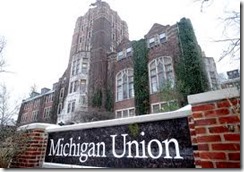 |
| Kind of. |
*other than the defensive secondary, which the NLRB noted “did not seem to understand what a ‘deep half’ was supposed to look like, and displayed an utter disregard for the coaches’ directions to, quote, ‘just look for the other color jersey and guard someone, anyone, goddammit.’”
But the players aren’t paid. They just got to go to school for free and eat some free food and stuff. How are they any different than a normal scholarship student who does biology things the way the biology department says?
That was the University’s main argument. They claimed that the players were more like Graduate Assistants, who aren’t considered employees under a previous NLRB decision (Brown University, 342 NLRB 483 (2004)). The court said that the difference was that GAs aren’t employees because their relationship to their various universities is primarily educational. In other words, your PoliSci GA is simultaneously teaching and studying PoliSci, so they don’t count him as an employee for the teaching part.
The ‘work’done by football players, on the other hand, is completely unrelated to the educational mission of the school and to the athletes’ studies. The university doesn’t get any educational advancement from what football players do (though Northwestern seriously tried to make the argument that playing sports enriches the student experience, and sports are therefore educational, which is exactly as bad of an argument as it sounds).
Instead the school receives gigantic piles of money from what football players do. The school’s interest is economic, not educational. Moreover, they said that the players are not “primarily students,” as they spend up to 50-60 hours per week** on football duties.
Cool to see so many people excited about education
**Real hours. No one other than the NCAA gives a flying crap about the hilarious differentiation between “countable hours” and “non-countable hours.” Mike Rosenberg still sucks.
[AFTER THE JUMP: More union talk. Plus a Sad Pat Fitzgerald GIF]
So who does this affect?
Not as many people as you might think.
- We’re just talking about football players = This doesn’t automatically make the Northwestern Swimmers Local 113 a thing. The way the ruling is written, it’s pretty clearly limited to football for now.
- Walk-ons aren’t people – Okay, they might be ‘people.’ But because they aren’t compensated the same way scholarship athletes are, because they have more flexibility than scholarship athletes, and because they don’t sign a tender, they aren’t covered by this ruling. You may continue to throw mud on them.
- This only applies to private schools – If you were paying attention above in the boring legal section, the NLRA only applies to private employers. Public school athletes are covered by various state laws regarding public sector employees.
So cut to the chase: how much are Northwestern players going to get paid now? And what IS the going rate for the run-of-the-mill Unstoppable Throw God?
We’re like 31 steps from there. This isn’t a ruling that gets players paid. It isn’t a ruling that changes anything about the game or the player obligations or team rules or jerseys. It doesn’t even create a union at Northwestern. All it does is declare that Northwestern players CAN form a union, and that the union (if created) will be empowered to negotiate on behalf of the players.
This isn’t about pay-for-play. CAPA has listed its goals, which consist of:
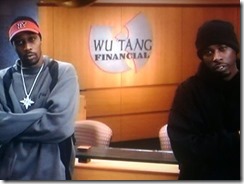 |
| You’ve gotta diversify your bonds. |
- Improved medical coverage;
- Protecting player brains and whatnot;
- Improving graduation rates;
- Allow players to commercially exploit their own likenesses if/when the NCAA removes the stick from its institutional rectum; and
- Improving due process rights for rule violation punishments.
Notably missing are “cash rules everything around me,” “get the money,” and “dollar dollar bill y’all.”
But this breaks college sports into a billion tiny pieces, each no larger than Tom Izzo, right?
According to the NCAA, yes. According to logic, shut the hell up NCAA.
First, despite the fact that it has become a Key and Peele parody of an SNL parody of itself, the NCAA continues to exist, and its eligibility rules are still in place. If CAPA formed a union tomorrow and demanded that Northwestern pay them an additional 7 cents per hour, the players would become ineligible. Now, granted, the NCAA has mountains of its own legal troubles already, but the nature of the interaction between Northwestern and its athletes is completely detached from the NCAA.
Some (including John Infante) have wondered whether this would put either schools’ or the NCAA’s non-profit/tax exempt status in jeopardy, but I don’t think so. Non-profits can have employees, and they can do things that make money. The vast majority of sports would still be amateur, so I don’t think it’s a problem.
Of course, the NCAA came out with one of their usual “holy shit you actually pay these people to communicate with the public for you on purpose” statements in response to the ruling (which has been appropriately fisked by Sippin on Purple). They continue to conflate the issues of athlete pay with athlete negotiating rights, because John Q. Fan doesn’t think college athletes should be paid, but is generally okay with athletes jointly deciding to try to avoid rhabdo and concussions a little bit.
These guy, man.
Doesn’t this mean that scholarships are going to be taxed?
Maybe. Probably not. But definitely not right now. Multiple tax experts have given different answers to this question, and I am not a tax lawyer. But I did stay at a Holiday Inn Express once, and without going too deep in the weeds, the IRS decided a long time ago that it was not going to tax athletic scholarships. IRS Revenue Ruling 77-263 states that athletic scholarships are excluded from gross income.
If the Universities and the newly-unionized players don’t make any significant changes to the compensation structure, there is no reason to expect the IRS to change its stance. You see, the IRS doesn’t much give a Chipotle-induced crap about what the NLRB says, and the NLRB couldn’t care less about how people treat income for tax purposes. One of the first things you learn in labor law is that an employee is an employee whether you label them an “employee,” a “student-athlete,” a “compensated volunteer,” or "haberdasher's apprentice." It is the facts that control, not the labels.
 |
| Generic taxation picture |
Plus, here’s the kicker: under Rev. Rul. 77-263, athletic scholarships are taxable if they can be withdrawn by the universities in the event the athlete quits his chosen sport. So, on a plain text reading, athletes should be paying taxes RIGHT NOW. If Brady Hoke can pull a scholarship from a kid who decides to quit football (and I think that’s a pretty safe bet), Michigan football players should already be counting their scholarships as income. But one thing a union can potentially do is get the school to enforce its four year guaranteed scholarship authorized by the NCAA, which WOULD bring them back within the tax-free zone.
Like I said, weeds. But the bottom line is that the people who set and interpret the tax code are subject to political pressure. They aren’t going to put themselves out there as the monsters who obliterated college football over a tiny tiny tiny amount of tax revenue. It’s a theoretical risk, not a practical one.
I’ve gotta ask: what is the big deal?
The practical effects are interesting and could potentially affect a few parts of the athlete/university relationship. But for me, the bigger issue is a more fundamental one.
People have asked why the NLRB thinks athletes should be employees, and that’s a fundamental misunderstanding of the process. The NLRB isn’t saying football players should be treated like employees. They’re saying that football players ARE employees. The NCAA has been hiding for years behind the theory that because these kids are “student-athletes” (a term the NCAA made up to avoid liability), the normal rules don’t apply.
Yesterday’s ruling was a pretty clear indication that those arguments are crap. You have an industry that makes huge amounts of money. You have a labor force that is highly skilled, drawn from a very narrow pool, and that spends more than a full time job worth of time on the job. The company’s income is largely based on the performance of the workers. They are under the complete (and damn-near dictatorial) control of their supervisors. And they are compensated to the tune of $50,000 to $75,000. And you ask people to believe they aren’t employees because you created a useful fiction that lets everyone sleep better at night? Shove it, sir. Shove it hard. When you see the facts on paper, it’s impossible to reach any other conclusion without adding some external consideration; “but think of what it will do to the game?”
We tend to let a lot of things slide because we love sports so much. We like physical sports, so law enforcement doesn’t get involved when a player comes up behind a guy from behind, knocks him out cold, and whacks him in the neck with five foot long wooden stick in front of 6,000 witnesses. We enjoy the NCAA football video games, so we played along with the amusing theory that Michigan’s quarterback just happened to wear the same #16 the stores happened to be selling for a few years. We even try to talk ourselves into the idea that maybe football isn’t as dangerous as it’s being made out to be. But with yesterday’s ruling, at least we can say that the legal system can still see through Mark Emmert’s steaming fiction.
What happens now?
Northwestern will almost certainly appeal the ruling to the full NLRB, and I don’t have a clue what happens there. Lester Munson seems pretty confident the ruling will stand, but a labor attorney friend of mine was more skeptical and pointed out that the NLRB doesn’t like rocking the boat, so who knows. In the meantime, the players can vote immediately on whether to form a union. Only the currently-enrolled scholarship athletes are eligible to vote.
Can we get the promised Sad Pat Fitzgerald GIF?
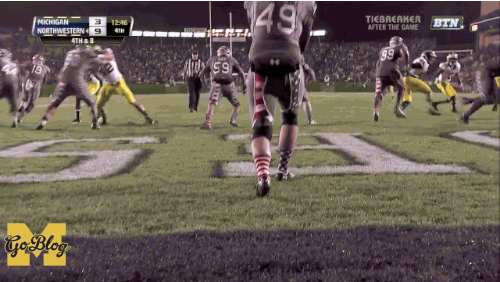
Unions have done wonders for public education and the auto industry
: /
As a professor of 20 years my own sense is no for at least two reasons:
1. University types have a very strong cultural identity that is built around univerities occupying a special place separate from the outside world. Most of us believe that the best and most important things about a university require this separation, which is threatened whenever we do things as if we were not a university (ie when we operate like a business). This is why, yes, like the Olympics, the ideal of the amateur "student athlete" exists. Universities at their best are places for young people to learn, to grow, to try new things, and to run around and play sports as part of that. That's what *universities are for.*
Universities are *not* for employing a random collection of people for the purpose of entertaining other people. If it were, then why stop at running the Michigan football team? Why not buy the Lions? Surely UM could do a better job than the Fords?
As it is the modern football system, much as I love the sport itself, already creates serious threats to universities like Michigan. But creating a "Football Business Unit" that does not even employ students just to play "Michigan" football would 1000% violate the cultural identity of most profs I know and I don't think it will ever happen.
That said, I am in total agreement with Brian that the current system has to change - both for the reason I just mentioned and for the unfairness of the U exploiting kids who have no realistic opportunity to be students for money and glory.
2. But the fix won't be to start paying them because in addition to Reason #1, I think most university leaders don't think they can control where things will wind up if they have to start paying players. The current legal tribulations of the NCAA on several fronts all stem from the same basic problem: when universities stop acting like universities and start acting like businesses, they start doing shitty things that get them in trouble. The easiest path forward with the least chance for total malfunction is for universities to back off. Starting to pay football players, on the other hand, is to ask for decades of uncertainty around the legality of it all, the fairness of it all, the consequences for conferences and the NCAA, and on and on. Maybe th end result is a beautiful new thing, but probably it won't be, and on top of that you get the opportunity to goof big. Of course, making any changes will bring some uncertainty, but for universities a much safer route, if forced, will be to stop offering scholarships entirely or to look for some other way in which to divorce themselves from the financial side of the equation.
I have less than no idea how all this will eventually shake out; it seems awfully unlikely that a U of M president could convince a board of regents to stop offering scholarships and voluntarily give up however many millions per year in lost revenues, not to mention to give up competitive advantage to OSU (new uniform logo partner: Kroger) and Alabama (new corporate sponsor: Hooters), but then I think the idea that the president is going to get permission to pay football players real money is equally unlikely.
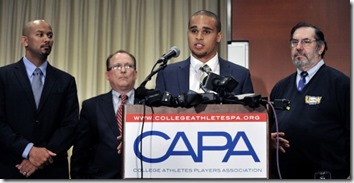
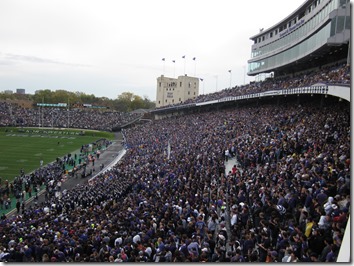

Comments